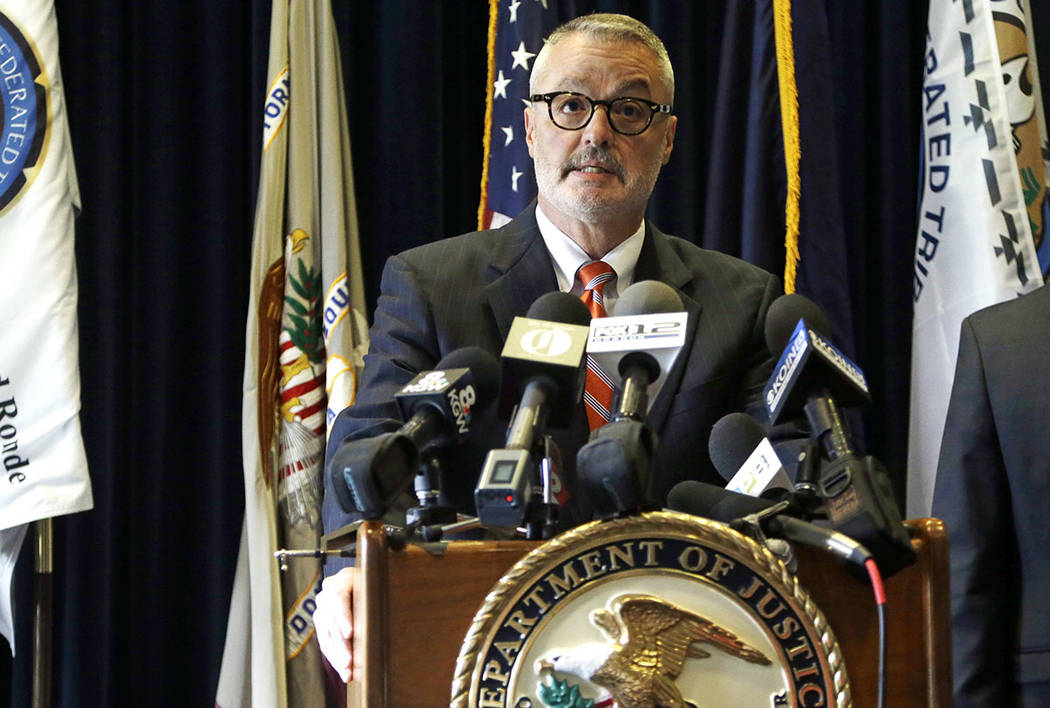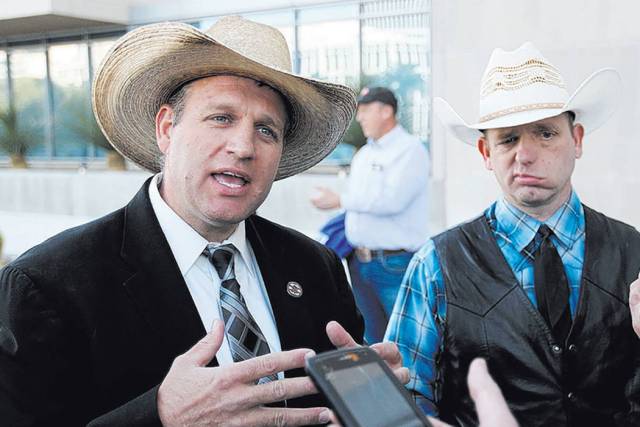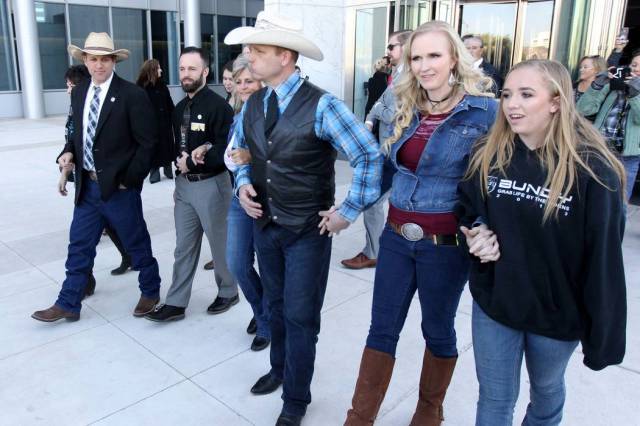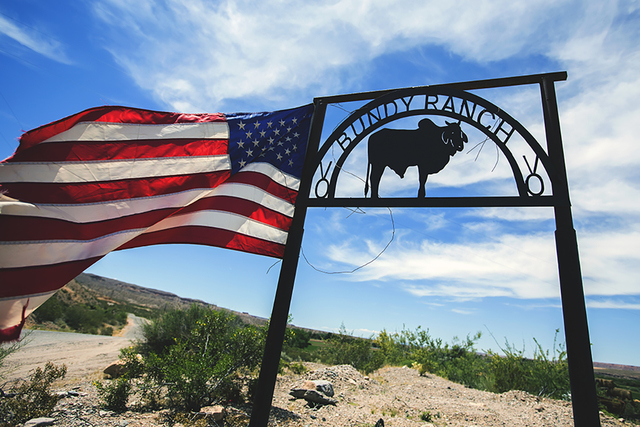SEATTLE — Only three days before a 46-year-old man filed a lawsuit
accusing him of child rape and “molestation,” Seattle Mayor Ed Murray
was featured in a national interview story as one of the faces of the
Democratic Party’s resistance to President Trump.
said Murray was “positioning himself at the forefront of the pushback” to Trump.
His city had and he had teamed with Washington’s governor and attorney general to oppose Trump’s temporary travel ban, resulting in a ruling by a federal judge in Seattle to temporarily halt the president’s executive order.
Murray, who is running for re-election this year, told Politico he was “beginning to think we’re dealing with America’s first authoritarian administration.”
But last Thursday, a local man filed a , claiming Murray raped and molested him when the man was a teenager.
with a thorough, multi-reporter examination of the charges, including interviews with two other men with similar profiles who told similar stories and provided matching intimate physical details of Murray and the apartment he lived in at the time.
and he said he felt sad for the “troubled” individual making the claims.
“I have never backed down,” he said. “And I will not back down now.”
“Let me be clear: These allegations, dating back to a period of more than 30 years, are simply not true,” the mayor said.
The mayor’s personal spokesman Jeff Reading said: “These false accusations are intended to damage a prominent elected official who has been a defender of vulnerable populations for decades. It is not a coincidence that this shakedown effort comes within weeks of the campaign filing deadline. These unsubstantiated assertions, dating back three decades, are categorically false. Mayor Murray has never engaged in an inappropriate relationship with any minor. … Mayor Murray will vigorously fight these allegations in court.”
However, for deciding to investigate and report the allegations, noting it had interviewed two other accusers and sought “documentation or witnesses to corroborate their accounts.”
The Times knew of two other accusers in March 2008, Jeff Simpson and Lloyd Anderson, but chose not to report their claims at the time, because, among other things, the attorney for Simpson withdrew a potential lawsuit.
“Ultimately, we felt we did not have enough information to publish these very serious accusations,” the Times said.
But the paper “decided we needed to take another look when we learned recently that a Kent man was preparing to sue now-Mayor Murray.”
“We found no connection between the new accuser, identified in the lawsuit as D.H., and the other men. Our reporting revealed similarities among the three accounts, including some graphic details. We felt readers should know,” the Times said.
“We don’t take these decisions lightly, and make them only after lengthy discussions. We know this is a disturbing story. But we cannot shy away from important stories simply because they make us uncomfortable.”
After Murray’s statement Friday, the lawyer for D.H., , arguing the mayor’s representatives have never asked for his client’s identity, so if Murray is being truthful “he should have no idea who my client is” and would have no basis to “paint him as ‘troubled,‘” unless he knew him.
Epicenter of resistance
Murray was named in a Feb. 5 Washington Post article headlined ” noting the mayor had vowed to protect illegal-alien residents, even asking the city to rework budgets in anticipation of the loss of federal funds.
“This city will not be bullied by this administration,” Murray .
Politico reported Murray’s path to City Hall in Seattle began as an AIDS activist in the 1980s. Later, he managed a friend’s campaign for state representative. Murray was appointed to that seat himself after the friend died. He then won a seat in the state Senate before defeating an incumbent in a 2013 mayoral primary.
Under Murray, Seattle led the nation in imposing a $15 minimum wage and has initiated controversial, tax-hiking programs to combat homelessness that have included tent cities and encampments deploying run-down RVs.
Days before the lawsuit against him was filed, in favor of pursuing a county sales tax increase to pay for services in the region.
Seattle and King County rank third — behind Los Angeles and New York City — among 50 major cities and counties in the number of homeless people, with nearly 11,000, according to a November 2016 federal government report.
In his interview with Politico April 3, Murray discussed his Catholic faith — he once studied to be a priest before changing direction — and the divisions among Democrats who are trying to mount a resistance to Trump.
“On the national level, at times, I feel like we are becoming like the tea party on the far right, that we have purity tests,” he said.
“If we are starting to have purity tests amongst ourselves, then we’re never going to gain back those working-class and lower-income people that we are building a progressive movement for.”
‘Healing process’
The three accusers interviewed by the Times said they knew Murray when they were growing up in Portland in the 1980s.
In his legal complaint, D.H. alleges Murray “raped and molested him” over several years, beginning in 1986 when the man was a 15-year-old high-school dropout and crack-cocaine addict.
“I have been dealing with this for over 30 years,” the man, now sober for a year, told the Times.
He said he was coming forward as part of a “healing process” after years of “the shame, the embarrassment, the guilt, the humiliation that I put myself through and that he put me through.”
The two other accusers, Simpson and Anderson, also described themselves as troubled teens in the 1980s when they knew Murray.
Simpson told the Times he spoke to a detective and a social worker in 1984 about his claim, but no charges were filed.
A decade ago, they both raised the allegations to media and Washington state lawmakers. Simpson, in 2008, said he spoke on the phone with the Rev. Ken Hutcherson, the late local pastor who was an outspoken activist for traditional marriage.
Anderson and Simpson told the Times they would testify in court if needed.
Murray’s spokesman, Reading, addressed the previous claims.
“The two older accusations were promoted by extreme right-wing anti-gay activists in the midst of the marriage equality campaign, and were thoroughly investigated and dismissed by both law enforcement authorities and the media,” he said.
The Times pointed out all three of Murray’s accusers have “substantial criminal records.”
Simpson said he understands why people didn’t believe him then.
“I get it. I understand, my past is less than stellar,” he said. “… People did think I was nuts and nobody wanted to believe it. But I felt I needed to tell the truth, finally tell the truth.”
D.H. told the Times he didn’t see how Murray could deny the claims. The paper said attorneys want to question the mayor under oath within 90 days.
The accuser wants Murray held accountable for treating him “like I was just nothing, like I was worthless.”
His lawsuit said he “is disturbed that Mr. Murray maintains a position of trust and authority, and believes that the public has a right to full information when a trusted official exploits a child.”
‘Potential land mines’
The Seattle Time’s Nina Shapiro cited
Danni Askini of the Gender Justice League said it’s “too soon” to take sides but said she felt emotional about the allegations.
“The news has been unbelievably triggering for survivors of DV (domestic violence), sexual assault and childhood sexual assault,” she wrote in a Facebook post.
But she is also concerned, Shapiro said, about how “accusations like these can feed homophobic stereotypes.”
“I see so many potential land mines here,” Askini wrote.
Shapiro said that while the mayor and his spokesmen have accused the men of having political motivations, “the allegations — though unproven and still fresh — had an all-too-familiar ring.”
“It’s the pattern,” said Richard Sipe, a former priest who has written and testified about sexual abuse in the Catholic church. “All the elements are there.”
Sipe noted the alleged victims were vulnerable people, and Murray is accused of developing a relationship with them by offering help.
In Catholic church abuse cases he has studied, Sipe told the Times, priests often chose children who had lost a father, then drew close and said, “I’ll be your father now.”
Mary Dispenza, Northwest leader of Survivors Network of Those Abused by Priests, didn’t want to jump to conclusions, recalling Murray was a leader in supporting homosexuals in the church.
But she told Shapiro the allegations stirred memories.
Dispenza said he was abused at age 7 but didn’t disclose it until she was 52.
“I know what holds us back,” she said, referring to shame.
members of the Seattle City Council were remaining silent about the allegations. Council President Bruce Harrell said in a written statement he and the council’s other members “have no intention of commenting on matters of pending or potential litigation. We believe that it is critically important that, together, we remain committed to the business of governing.”
If Murray were to resign, Harrell would be called upon to serve as acting mayor.
“Our city cannot afford to be distracted,” Harrell said. “There is a judicial process that will address the serious allegations that this situation has presented, and we will respect that process and the rights of all parties involved. All accusations of abuse require a thorough investigation. It is in our human nature to immediately want answers, but I ask we not cast aspersions to the parties involved before we have all the facts through the legal process. I am confident that through this process, truth and justice will prevail.”
said Murray was “positioning himself at the forefront of the pushback” to Trump.
His city had and he had teamed with Washington’s governor and attorney general to oppose Trump’s temporary travel ban, resulting in a ruling by a federal judge in Seattle to temporarily halt the president’s executive order.
Murray, who is running for re-election this year, told Politico he was “beginning to think we’re dealing with America’s first authoritarian administration.”
But last Thursday, a local man filed a , claiming Murray raped and molested him when the man was a teenager.
with a thorough, multi-reporter examination of the charges, including interviews with two other men with similar profiles who told similar stories and provided matching intimate physical details of Murray and the apartment he lived in at the time.
and he said he felt sad for the “troubled” individual making the claims.
“I have never backed down,” he said. “And I will not back down now.”
“Let me be clear: These allegations, dating back to a period of more than 30 years, are simply not true,” the mayor said.
The mayor’s personal spokesman Jeff Reading said: “These false accusations are intended to damage a prominent elected official who has been a defender of vulnerable populations for decades. It is not a coincidence that this shakedown effort comes within weeks of the campaign filing deadline. These unsubstantiated assertions, dating back three decades, are categorically false. Mayor Murray has never engaged in an inappropriate relationship with any minor. … Mayor Murray will vigorously fight these allegations in court.”
However, for deciding to investigate and report the allegations, noting it had interviewed two other accusers and sought “documentation or witnesses to corroborate their accounts.”
The Times knew of two other accusers in March 2008, Jeff Simpson and Lloyd Anderson, but chose not to report their claims at the time, because, among other things, the attorney for Simpson withdrew a potential lawsuit.
“Ultimately, we felt we did not have enough information to publish these very serious accusations,” the Times said.
But the paper “decided we needed to take another look when we learned recently that a Kent man was preparing to sue now-Mayor Murray.”
“We found no connection between the new accuser, identified in the lawsuit as D.H., and the other men. Our reporting revealed similarities among the three accounts, including some graphic details. We felt readers should know,” the Times said.
“We don’t take these decisions lightly, and make them only after lengthy discussions. We know this is a disturbing story. But we cannot shy away from important stories simply because they make us uncomfortable.”
After Murray’s statement Friday, the lawyer for D.H., , arguing the mayor’s representatives have never asked for his client’s identity, so if Murray is being truthful “he should have no idea who my client is” and would have no basis to “paint him as ‘troubled,‘” unless he knew him.
Epicenter of resistance
Murray was named in a Feb. 5 Washington Post article headlined ” noting the mayor had vowed to protect illegal-alien residents, even asking the city to rework budgets in anticipation of the loss of federal funds.
“This city will not be bullied by this administration,” Murray .
Politico reported Murray’s path to City Hall in Seattle began as an AIDS activist in the 1980s. Later, he managed a friend’s campaign for state representative. Murray was appointed to that seat himself after the friend died. He then won a seat in the state Senate before defeating an incumbent in a 2013 mayoral primary.
Under Murray, Seattle led the nation in imposing a $15 minimum wage and has initiated controversial, tax-hiking programs to combat homelessness that have included tent cities and encampments deploying run-down RVs.
Days before the lawsuit against him was filed, in favor of pursuing a county sales tax increase to pay for services in the region.
Seattle and King County rank third — behind Los Angeles and New York City — among 50 major cities and counties in the number of homeless people, with nearly 11,000, according to a November 2016 federal government report.
In his interview with Politico April 3, Murray discussed his Catholic faith — he once studied to be a priest before changing direction — and the divisions among Democrats who are trying to mount a resistance to Trump.
“On the national level, at times, I feel like we are becoming like the tea party on the far right, that we have purity tests,” he said.
“If we are starting to have purity tests amongst ourselves, then we’re never going to gain back those working-class and lower-income people that we are building a progressive movement for.”
‘Healing process’
The three accusers interviewed by the Times said they knew Murray when they were growing up in Portland in the 1980s.
In his legal complaint, D.H. alleges Murray “raped and molested him” over several years, beginning in 1986 when the man was a 15-year-old high-school dropout and crack-cocaine addict.
“I have been dealing with this for over 30 years,” the man, now sober for a year, told the Times.
He said he was coming forward as part of a “healing process” after years of “the shame, the embarrassment, the guilt, the humiliation that I put myself through and that he put me through.”
The two other accusers, Simpson and Anderson, also described themselves as troubled teens in the 1980s when they knew Murray.
Simpson told the Times he spoke to a detective and a social worker in 1984 about his claim, but no charges were filed.
A decade ago, they both raised the allegations to media and Washington state lawmakers. Simpson, in 2008, said he spoke on the phone with the Rev. Ken Hutcherson, the late local pastor who was an outspoken activist for traditional marriage.
Anderson and Simpson told the Times they would testify in court if needed.
Murray’s spokesman, Reading, addressed the previous claims.
“The two older accusations were promoted by extreme right-wing anti-gay activists in the midst of the marriage equality campaign, and were thoroughly investigated and dismissed by both law enforcement authorities and the media,” he said.
The Times pointed out all three of Murray’s accusers have “substantial criminal records.”
Simpson said he understands why people didn’t believe him then.
“I get it. I understand, my past is less than stellar,” he said. “… People did think I was nuts and nobody wanted to believe it. But I felt I needed to tell the truth, finally tell the truth.”
D.H. told the Times he didn’t see how Murray could deny the claims. The paper said attorneys want to question the mayor under oath within 90 days.
The accuser wants Murray held accountable for treating him “like I was just nothing, like I was worthless.”
His lawsuit said he “is disturbed that Mr. Murray maintains a position of trust and authority, and believes that the public has a right to full information when a trusted official exploits a child.”
‘Potential land mines’
The Seattle Time’s Nina Shapiro cited
Danni Askini of the Gender Justice League said it’s “too soon” to take sides but said she felt emotional about the allegations.
“The news has been unbelievably triggering for survivors of DV (domestic violence), sexual assault and childhood sexual assault,” she wrote in a Facebook post.
But she is also concerned, Shapiro said, about how “accusations like these can feed homophobic stereotypes.”
“I see so many potential land mines here,” Askini wrote.
Shapiro said that while the mayor and his spokesmen have accused the men of having political motivations, “the allegations — though unproven and still fresh — had an all-too-familiar ring.”
“It’s the pattern,” said Richard Sipe, a former priest who has written and testified about sexual abuse in the Catholic church. “All the elements are there.”
Sipe noted the alleged victims were vulnerable people, and Murray is accused of developing a relationship with them by offering help.
In Catholic church abuse cases he has studied, Sipe told the Times, priests often chose children who had lost a father, then drew close and said, “I’ll be your father now.”
Mary Dispenza, Northwest leader of Survivors Network of Those Abused by Priests, didn’t want to jump to conclusions, recalling Murray was a leader in supporting homosexuals in the church.
But she told Shapiro the allegations stirred memories.
Dispenza said he was abused at age 7 but didn’t disclose it until she was 52.
“I know what holds us back,” she said, referring to shame.
members of the Seattle City Council were remaining silent about the allegations. Council President Bruce Harrell said in a written statement he and the council’s other members “have no intention of commenting on matters of pending or potential litigation. We believe that it is critically important that, together, we remain committed to the business of governing.”
If Murray were to resign, Harrell would be called upon to serve as acting mayor.
“Our city cannot afford to be distracted,” Harrell said. “There is a judicial process that will address the serious allegations that this situation has presented, and we will respect that process and the rights of all parties involved. All accusations of abuse require a thorough investigation. It is in our human nature to immediately want answers, but I ask we not cast aspersions to the parties involved before we have all the facts through the legal process. I am confident that through this process, truth and justice will prevail.”



















